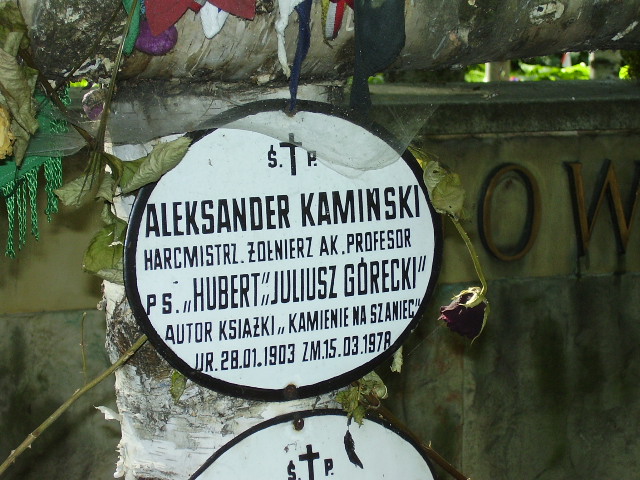Most Poles know Aleksander Kamiński as the author of the book “Stones on the Rampart”, currently a school textbook. His vivid biography could also serve as the plot of a novel about him.
Kamiński was born on 28 January 1903 in Warsaw. His family was sent by fate to Kiev and then to other cities in Tsarist Russia. When he was 7 years old his father died, and soon afterwards he lost contact with his mother, having got lost at a railway station. He only met up with her years later in free Poland. In Uman, he was placed in the care of his uncle, who had been killed during the pogroms in that city.
Already as a 13-year-old, Kaminski was forced to take a job as a messenger in a bank. In Uman, where there was a large concentration of Poles, there was a Polish scouting movement, which Kaminski joined in 1918, quickly rising to the position of scout patrol leader, and later to the position of adjutant, team leader and nest commander.
In 1921, Aleksander returned to Warsaw, where, after graduating from the secondary school, he began studying history and working at a boarding school in Pruszków. There he continued his scouting career, rising to the rank of scoutmaster and taking over the leadership of two scout teams there, to become commander of the Pruszków Troop in 1925. Later, he held positions such as commander of the Mazovian Scouting Association’s Mazovian Region leader and head of the Scouts Department at the Scouts Headquarters. He associated his further scouting life with the scout movement, publishing many methodological works, as well as directing schools and courses for educators of the kids.
Kamiński saw the outbreak of the Second World War in Silesia, where he ran a scout centre. As early as October 1939, he began to participate in the underground activity, becoming a member of the command of the Grey Ranks, an underground scout organisation. He published books (“The Great Game” and ” Leader. Handbook for the leaders of Zawisza units”, and ” Stones on the Rampart”), as well as numerous articles in underground magazines. He was also the founder of the Organisation of Small Sabotage “Wawer”.
He took part in the Warsaw Uprising as editor of the “Information Bulletin”. After the end of the war, he obtained the degree of Doctor of Philosophy and was later awarded a professorship. With interruptions due to political repression, he lectured at the University of Lodz, all the time being associated with scouting life. He was decorated many times, including with the “Righteous Among the Nations” medal.
He died on 15 March 1978, and was buried next to the heroes of “Stones on the Rampart” in the quarters of the scout Battalion “Zośka” in the Military Powazki cemetery in Warsaw.





